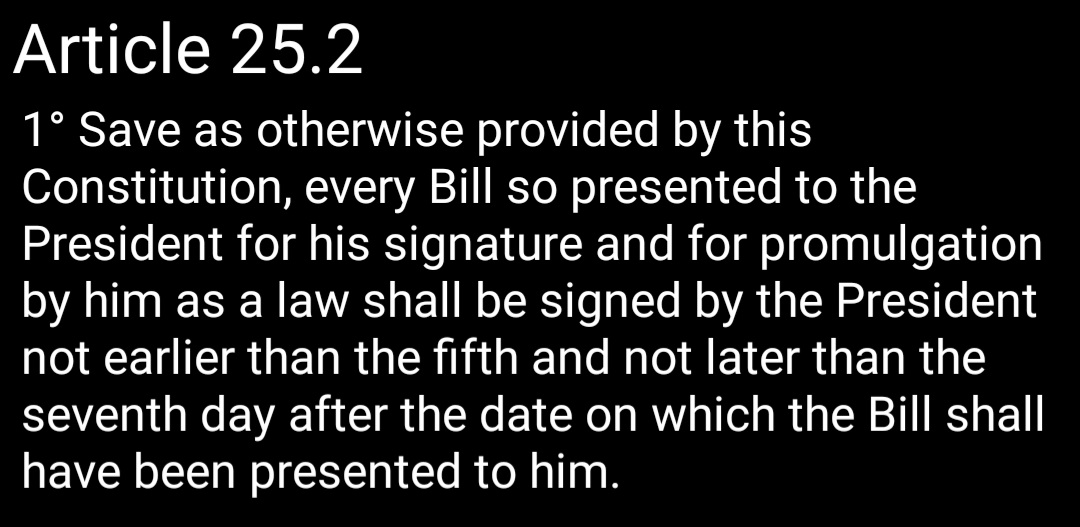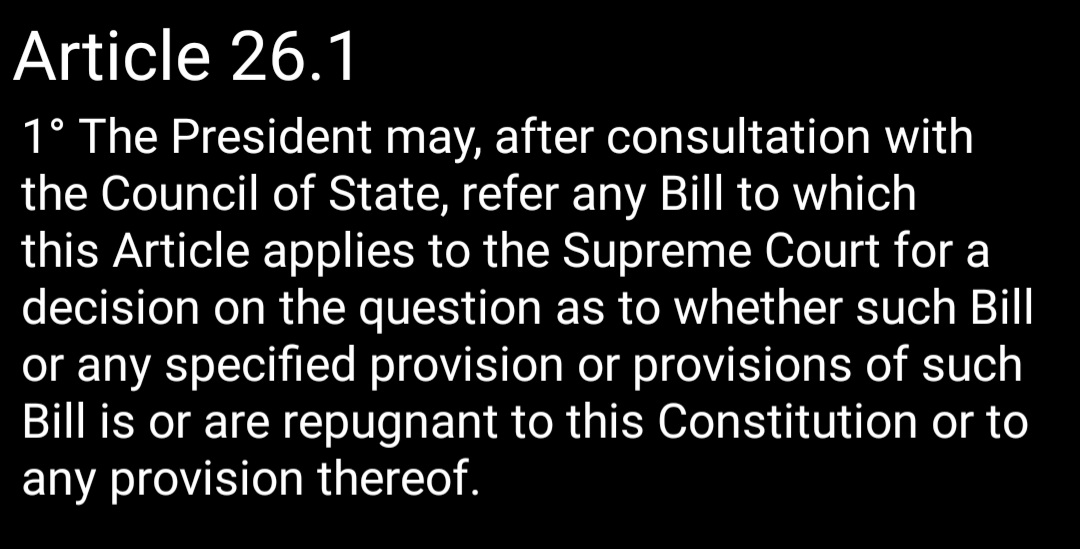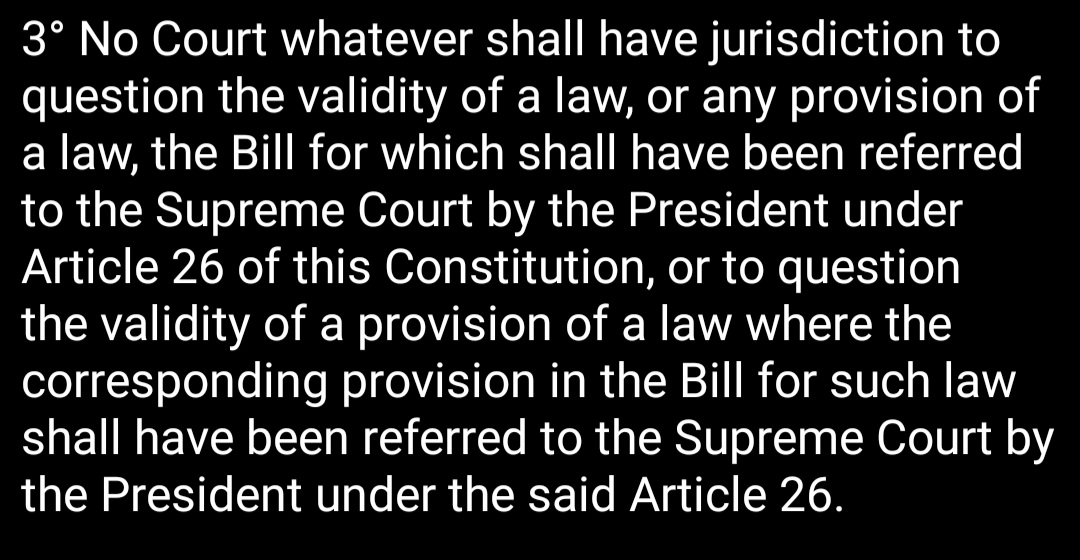
Seeing a lot of commentary, and quite a bit of confusion, about the President singing the Mother and Baby Homes Bill into law. Here's a quick explainer thread designed to clear up a few points about what did (and didn't) happen:
First, it's important to note that the President has very little discretion in all of this. All laws passed by the Oireachtas must be signed by him/her unless they fall within the exceptions set out in Arts 26 or 27. 

Art 27 is a very specific exception that allows a Bill to be put to a referendum vote if a series of prescribed prcedural conditions have been met. They were not met here, and so Art 27 could not be invoked. (Incidentally, it has never been invoked.)
Art 26 allows the President to refer a Bill to the Supreme Court to test whether it complies with the Constitution. This was the provision that a lot of people seemed to expect the President to utilise here. 

However, while significant legal concerns have been expressed about the Mother and Baby Home Bill, they relate to its compatibility with EU law and not the Irish Constitution. This is not within the scope of Art 26. It was therefore not surprising that the President signed.
An additional piece of background is that if a Bill is referred to the Supreme Court under Art 26 and upheld, it becomes immune from any subsequent constitutional challenge. (This immunity would not extend to challenges based on EU law.) 

What was unusual was that the President issued a statement noting the concerns expressed during the passage of the Bill, and highlighting the fact that it remains open to citizens to challenge it. I am not aware of a similar statement in the past, although I am open to correction 

The President's statement may have fueled some of the confusion by suggesting that there may be grounds for a constitutional challenge. (There might be - but they would most likely be a long shot.) Any future challenge is far more likely to be based on EU law.
In summary: signing the law was not unexpected and the President had little choice. The Bill is unlikely to be unconstitutional. It may raise separate issues of compliance with EU law which may arise in the courts; but this does not mean the Bill should not have been signed. /END
• • •
Missing some Tweet in this thread? You can try to
force a refresh





